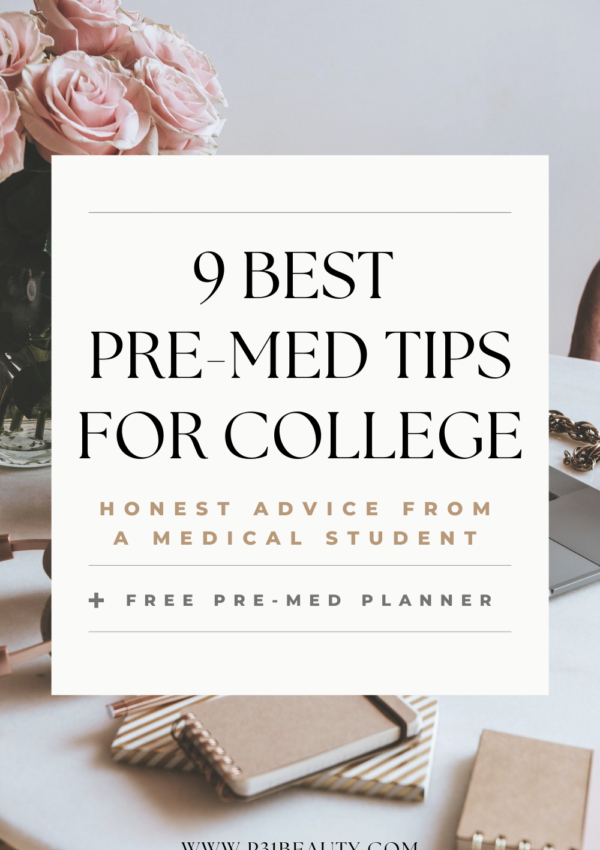WARNING: This post contains GIFs that may or may not make you smile.
Hi everyone! At this time, many high school students are committing to the college that they will spend the next few years at. If this is you, there are probably millions of questions buzzing through your mind. As a first-gen college student, I didn’t have anyone to answer my questions before freshman year. This is why I wanted to make a post for you all out there who have no one to ask or feel confused. In this post, I am answering the top 20 questions that incoming college freshmen have. You’ll find honest answers to your questions about classes, majors, freshman 15, making friends, and more! Read to the end to learn about my best advice for incoming college freshmen.
Related: 10 Super Helpful Tips for Taking Online Classes and Staying Motivated
Related: Advice Every First Generation College Student Needs to Hear
Here is the best advice for incoming college freshmen and answers to your top 20 questions:
1. I didn’t get into my dream school, now what?
I’m currently a student at UC San Diego, so you can probably guess that UCLA was actually my top pick. Back in high school, it was my DREAM school. Getting rejected from UCLA hurt my self esteem a lot because I had worked so hard throughout high school. However, after being at UCSD for the past 3 years, I am honestly so grateful that life turned out this way. I truly believe that the less competitive atmosphere and chill nature of UCSD compared to UCLA has allowed me to thrive as a student. This is super important for me, especially since I’m a pre-med student and good grades matter when applying to med school.
At the end of the day, it does not matter which college you get into. It’s more about what you do with your time in college. Let’s say you get into your dream school. You’d still take the same classes, join similar student-orgs, get a similar job, etc. What I’m trying to get at is you can do amazing and big things at your college, even if it’s not in your dream school. Don’t let a negative mindset hold you back! And honestly, college students don’t really care about who got in where because we’re too busy focusing on getting good grades and experiences.
Want more advice on this topic? Read my post:
How to Deal With College Rejections
2. What to do the summer before college?
The summer before college should be spent RELAXING and not doing anything academic. The next four years of your life in college are going to be very busy and academically stressful, so you should just cherish this time of bliss. Personally, I would get a part-time summer job to save some money and just make sure I’m ready for the move to college. Which brings us to the next question…

3. What should I bring to college?
I have a whole other post dedicated to EVERYTHING you need to pack for your dorm. It also includes a free downloadable packing checklist that will make packing for college SO MUCH EASIER. Click on the link below to check it out!
Read the Post:
Everything You Need to Pack for Your Dorm in 2020
GET YOUR FREE COLLEGE PACKING LIST TODAY

Trust me. This free college packing list will make packing so much easier for you! Click the button below to receive it directly in your inbox.
4. How do I make friends in college?
If you’re going into college without knowing anyone, don’t worry!! Every other freshman is also on the same boat also looking to make friends! During freshman year, you’re going to meet so many new people in your dorm, classes, student-orgs. My one advice is to just be yourself. Don’t do anything rash because of the fear of feeling left out or peer pressure. Those who are truly your friends should love and accept you for you!

5. What major should I choose in college?
You should choose a major that relates to your future career. For example, I want to get into med school and become a doctor. It so happens that the class requirements of being a biology major at my school aligns really well with the class pre-reqs for applying to med school. That’s why I chose to be a biology major- more specifically a biochemistry and cell biology major. If you’re not quite sure what you want to do in the future yet, you can be an undeclared major until you’ve taken some classes and gotten work experience to have an idea of what you want to do in the future. Also, it’s really common for college students to switch their major because they end up realizing that they don’t want to go a certain path anymore.

6. What does A.A., A.S., B.A., B.S., stand for in college?
All of these acronyms stand for the type of degrees you can get in college. Here’s what they mean:
• Associate of Art (A.A.) – You receive your associates degree after 2 years in college. Degrees in “Art” are more flexible and focuses primarily on the humanities (social sciences, literature, performing arts, humanities, fine arts, etc.).
• Associate of Science (A.S.) – You receive your associates degree after 2 years in college. Degrees in “Science” place greater emphasis on math and science-related classes.
• Bachelor of Arts (B.A.) – You receive your bachelor degree after 4 years in college. Degrees in “Art” are more flexible and focuses primarily on the humanities (social sciences, literature, performing arts, humanities,, fine arts, etc.).
• Bachelor of Science (B.S.) – You receive your bachelor degree received after 4 years in college. Degrees in “Science” place greater emphasis on math and science-related classes.
Click here to read more on degree acronyms!
7. How can I save money on textbooks?
Textbooks sold on campus are incredibly expensive. We’re already spending so much on tuition! To get the cheapest prices for textbooks, I highly suggest renting them out because what are the chances that you’ll use it again once your class ends? You could also sell your old textbooks to make a few extra dollars! A great place for selling, renting, and buying textbooks is Amazon. For example, a new 11th edition Campbell biology textbook is originally $234.99 from the publisher’s website. Through Amazon, you can rent out the textbook for $19.99 and buy the eTextbook for $59.99. In addition, those who have Prime Student can get free two-day shipping on all textbooks. This is great incentive to get Prime Student!
READ THIS POST:
20 INSANELY EASY WAYS TO SAVE MONEY IN COLLEGE!

8. What happens if you plagiarize in college?
Most professors in college use Turnit.com to make sure that students are submitting their original work. If you are caught plagiarizing, this is considered as cheating and may be recorded on your transcript for future grad schools and employers to see. That’s like an automatic rejection from them! You may even get expelled depending on how serious it is. Plagiarizing is a big NO-NO in college. Don’t do it!

9. How to get a 4.0 GPA in college?
As someone who has a very close GPA to a 4.0, let me give you some honest advice. It’s freaking hard to get a 4.0, especially if you’re a STEM major! Definitely SHOOT for straight A’s throughout college, but if you get an A- or lower, don’t beat yourself up for it. Yes, your GPA is important, but you should prioritize your mental and physical health before your grades. If you are sacrificing sleep, your social life, or happiness by striving to get perfect grades, it’s not worth it. When you die, no one is going to remember you for your GPA in college. They’ll remember you for what you did and the impact you had on others’ lives. If you need some advice on how to get good grades this year in school, read this post:
Click here to read about How to Get Good Grades in School This Year!

10. What happens if I fail a class in college?
If you fail a class in college, don’t panic! It is not the end of the world. Assuming you put in the work, there could be other factors that may have lead to you failing the class. Your professor may have been bad or their teaching style didn’t suit you. You could have taken on too much in one quarter. The important thing is to move forward. Before you retake the class, reflect on what went wrong and be sure to put this into practice next time. Also, talk with your advisor to see if your new grade will replace the failing grade.

11. What does a W stand for?
In college, there are certain deadlines in the quarter/semester to add a class and drop a class without it showing up on your transcript. If you miss that deadline, you may still have the option of dropping a class later on in the quarter/semester, but it will be marked in your transcript as a W (stands for “Withdraw”). Employers and grad schools will know that you dropped it later on in the quarter/semester. Don’t worry though. Having one or two W’s won’t really affect your status when applying to grad school or future jobs.
12. What do units mean?
Units are assigned to each college class, with higher unit classes requiring more time dedicated to it. For example, my 2 unit class only meets once a week for 1 hour 20 mins. My 4 unit classes meet two to four times a week for a total of around 3 hours a week. In order to considered a full time student, you have to be enrolled in a certain amount of units which will vary depending on your school requirements.
Related: Cheap Back to School Supplies for 2020
GET YOUR FREE BACK TO SCHOOL SUPPLIES CHECKLIST TODAY

Trust me. This free back to school supplies list will make shopping so much easier for you! Click the button below to receive it directly in your inbox.
13. What classes do you have to take in college?
The classes you take in college depends on your college G.E. (General Education) and major requirements needed for graduation. I suggest making a list of all of those requirements and make a 4 year plan where you map out what classes you’ll take each quarter for the next few years in college. This will save you from taking classes you don’t need! Creating a 4 year plan help me determine that I can graduate college in 3 years! Click here to read about how I graduated college in 3 years.
DOWNLOAD A FREE 4 YEAR PLAN TEMPLATE
FOR QUARTER OR SEMESTER SYSTEM!

Trust me. This free 4 year template will make planning so much easier for you! Click the button below to receive it directly in your inbox.
14. How to choose the best professor for a class?
Look to see if your school offers a list of course and professor evaluations. At UCSD, we have CAPES where we can see the percent of students who recommend the class and professor, the amount of hours a week they studied, and the average grade that was received. Also, use Rate My Professor and Reddit to see the honest reviews that students wrote for the professor. Here are a few for the classes I’ve taken:


15. What does a college class schedule look like?
The amazing thing about college is that you create your own schedule AND you don’t have the same classes everyday. For example, can have a class that only takes place on Monday, Wednesday, Fridays. If you’re not a morning person, you can schedule you classes later on in the afternoon! It all depends on your preference and what times are offered for each class. Here’s my schedule for this quarter. Since everything’s online this quarter, I don’t have my other job or extracurriculars listed like usual, so it looks a bit empty. I scheduled my classes so that they only take place on Tuesdays, Wednesday, and Thursday. I essentially have a 4 day weekend, which is really nice!

16. Is it okay to skip lecture?
Some professors require you to attend lecture for points, while others podcast so that you have the option of watching the lecture on your own time at home. Regardless of which category your class falls into, I 100% believe that you should attend lecture because it keeps you disciplined in learning the material. You can also ask your profs questions on the spot, which is not an option when you podcast. The only time when you should skip lecture is if you’re sick or you have to catch up on studying for an upcoming test.

17. What electives should I take in college?
Take electives that are easy GPA boosters and interest you! The classes that you’re required to take may be hard enough, so your electives should be fun!
18. How to avoid freshman 15?
Avoiding the freshman 15 is not about going on a diet! It’s about eating the healthier food options regularly instead of pizza/junk food/sweets. You don’t have to eat only a salad for dinner, but choose meals that have vegetables and are less greasy. Also, staying active by going to the gym, doing home exercises, or just walking around campus to class will help you avoid the freshman 15.
For example, I would eat oatmeal and eggs for breakfast, a sandwich for lunch, and the healthier dinner options that were offered. If you want sweets or junk food, treat yourself! But just don’t have it all the time.
19. How do meal plans work?
Meal plans vary from school to school. At UCSD, we had a set amount of “Dining Dollars” that we used to pay for each food item. For example, if I wanted lunch, I’d have to pay for the sandwich and drink I chose with my dining dollars. Other schools have a swipe option where you have a certain amount of swipes a quarter/semester to enter the cafeteria and eat anything you want.
20. What is your best piece of advice for freshman year of college?
Meet new people, try new things, get out of your comfort zone, but remember to stay true to yourself and your values. Freshman year is the most fun year of college because your classes aren’t too challenging yet and everything is so new. It does go by super fast, so cherish it while it lasts.
I truly hope that this helps! If you have any specific questions about college or have ideas for future blog posts feel free to email me at p31beauty@yahoo.com. I am always here to help <3. Be on the look out for more college advice posts!
love,
blaze ann
Read This Post Next:
10 Must Have iPad Apps for College (What’s On My iPad Video)

















 .
.
.
.
.
.
.
.
#for
.
.
.
.
.
.
.
.
#for


 .
.
.
.


 !
(
!
(


